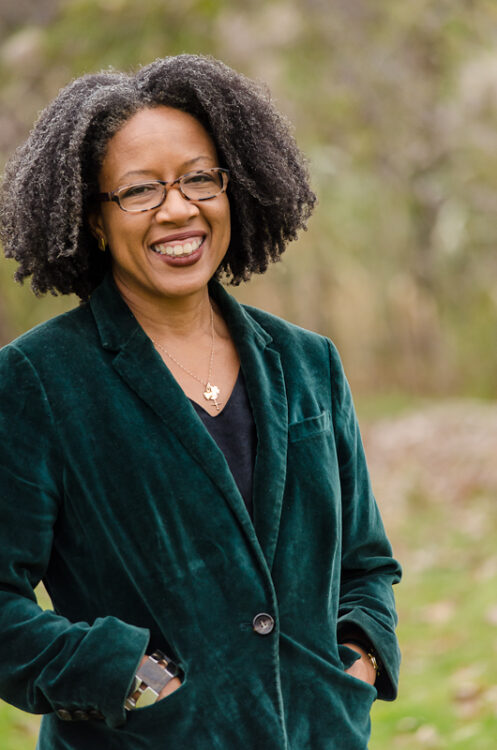Adelle Blackett has been selected to Chair the Task Force to review Canada’s Employment Equity Act. Introduced in 1986, the Employment Equity Act promotes fairness, equality and diversity in federally regulated workplaces.

The Employment Equity Review Task Force was launched yesterday by Minister of Labour, Filomena Tassi, along with the Minister of Diversity and Inclusion and Youth, Bardish Chagger, and Blackett.
“The Employment Equity Act is a critical tool to ensure that our workplaces are equitable, diverse and representative spaces,” said Tassi. “The Task Force’s work will be vital in identifying changes to help bring this Act into the 21st century and embrace the true potential of all workers. The pandemic, as well as many recent and tragic events, has demonstrated the depth to which change is needed now. As we look toward our future, we have an opportunity to make the kinds of changes that will result in more fair and equal opportunities for everyone to succeed – and that benefits workers, employers and all Canadians.”
Blackett brings a wealth of experience to the Task Force. The Canada Research Chair in Transnational Labour Law and Development at the Faculty of Law, she is an expert in International Labour Organization. She served as a commissioner at the Commission des droits de la personne et des droits de la Jeunesse; and as chair of the Human Rights Experts Panel of the federal Court Challenges Program.
She was appointed to the Canada-European Union Comprehensive Economic and Trade Agreement Chapter 23 (Trade and Labour) Roster of experts in 2018. In 2020, she was appointed to the Canada-United States-Mexico Agreement’s List of Rapid Response Labour Panelists.
A former official of the International Labour Office in Geneva, she was the chief legal architect behind the International ILO’s first comprehensive standards offering protections and rights to more than 60 million domestic workers. She also participated in a labour law reform process in Haiti (2011-2014).
This past fall, Blackett won the Principal’s Prize in Excellence in Teaching in the Full Professor category.
Modernizing a 37-year-old Act
The Task Force is mandated to make concrete, independent and evidence-based recommendations to the Minister of Labour on how to modernize the Act. Its final report is expected in early 2022.
The modernization of the Act is an important step in advancing the state of equity, diversity and inclusion in federally regulated workplaces, including by addressing the need for better retention and leadership opportunities for under-represented groups at some of Canada’s largest corporations. Creating more equitable, diverse and inclusive workplaces will also help result in higher productivity and better retention.
“Modernizing the Employment Equity Act to reflect the diversity of our society is a major step in building a consciously more inclusive Canada,” said Chagger. “Systemic racism and discrimination disproportionally affect LGBTQ2 Canadians, Indigenous peoples, Black and racialized Canadians, and other equity-seeking groups. The Government of Canada will continue to work on strengthening diversity and inclusion across federally regulated workplaces from coast to coast to coast through recommendations made by the Employment Equity Act Review Task Force.”
The aim of the Employment Equity Act is to remove systemic barriers for individuals in the four designated groups under the Act in federally regulated workplaces:
- women
- Indigenous peoples
- persons with disabilities, and
- members of visible minorities
The 1984 Equality in Employment: A Royal Commission report identified these groups as having lower salaries; higher unemployment rates; and a greater concentration in lower-paying occupational groups.
Cultivating “a legacy of equitable inclusion and flourishing workplaces”
The Task Force brings together a group of 13 members from a wide range of personal and professional experience. Along with Blackett, the Task Force includes vice-chairs, Marie-Thérèse Chicha and Dionne Pohler; and members Tao (Tony) Fang, Kari Giddings, Helen Kennedy, Raji Mangat, Fo Niemi, Kami Ramcharan, Sandra Sutter, Josh Vander Vies, Marie Clarke Walker and Ruth Williams.
“I am honoured by the opportunity to work on this timely and important review with each Task Force member, including my two vice-chairs,” said Blackett. “Task Force members bring a rich range of expertise and experience to the table that I’m confident will offer a strong foundation for the recommendations that we’ll develop and provide to the Minister of Labour. Redressing systemic racism and discrimination matters deeply to workers and employers in federally regulated workplaces across Canada, and to our society as a whole. Together, let’s cultivate a legacy of equitable inclusion and flourishing workplaces with a renewed Employment Equity Act that achieves equality.”
Read the Federal government’s press release.
